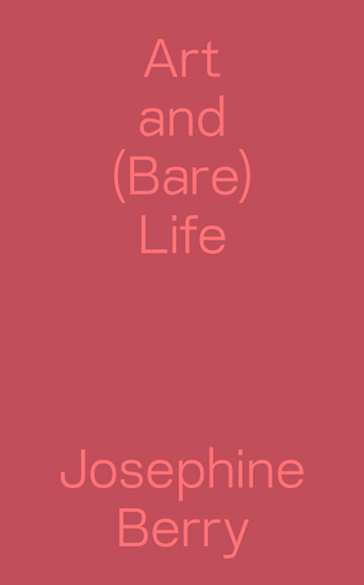Cart totals
| Subtotal | €31.50 |
|---|---|
| Shipping |
Shipping options will be updated during checkout. |
| Total | €38.31 (includes €3.16 VAT) |
| Subtotal | €31.50 |
|---|---|
| Shipping |
Shipping options will be updated during checkout. |
| Total | €38.31 (includes €3.16 VAT) |

Art and (Bare) Life: A Biopolitical Inquiry analyzes modern and contemporary art’s drive to blur with life, and how this is connected to the democratic state’s biologized control of life. Art’s ambition to transform life intersects in striking ways with modern biopower’s aim to normalize, purify, judge, and transform life—rendering it bare. In these intersecting yet different orientations toward life, this book finds the answer to the question: How did autonomous art become such an effective tool of the capitalist state?
From today’s “creative cities” to the birth of modern democracy and art in the French Revolution, Art and (Bare) Life explores how the Enlightenment’s discovery of life itself is mirrored in politics and art. The galvanizing revelation that we are, in Michel Foucault’s words, “a living species in a living world,” free to alter our environment to produce specific effects, is compared here to the discovery that art is an autonomous system that can be piloted toward its own self-determined ends—art for art’s sake. But when both art and the capitalist state seek to change life rather than reflect it, they find themselves set on a collision course.
The millennial body of the human is a territory marked by sacred codes, disciplines, and abstractions. To the technologies of biopower Josephine Berry waves the Medusa head of the art of rebellion.
Professor in Media Theory, Karlsruhe University of Arts and Design
Josephine Berry’s Art and (Bare) Life is an exemplary work. Here, for the first time, key concepts of contemporary political philosophy, such as biopower and biopolitics, are embedded within modern art history and theory. Erudite and sensitive to art’s complex field of intentions and outcomes, this in-depth study of aesthetics and politics is a must-read for anyone interested in understanding a foundational and regularly renewed dichotomy: ‘art’ and ‘life.’
Senior Lecturer in Contemporary Art History and Theory, University of Edinburgh